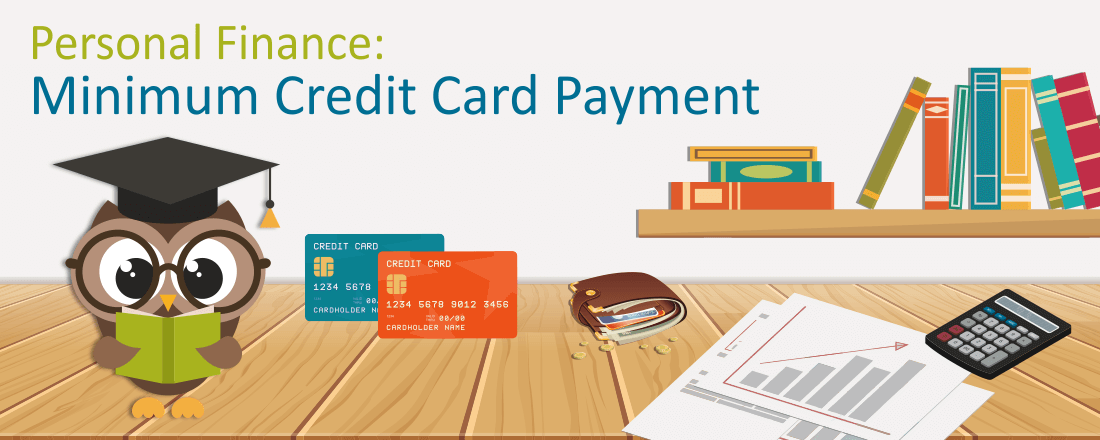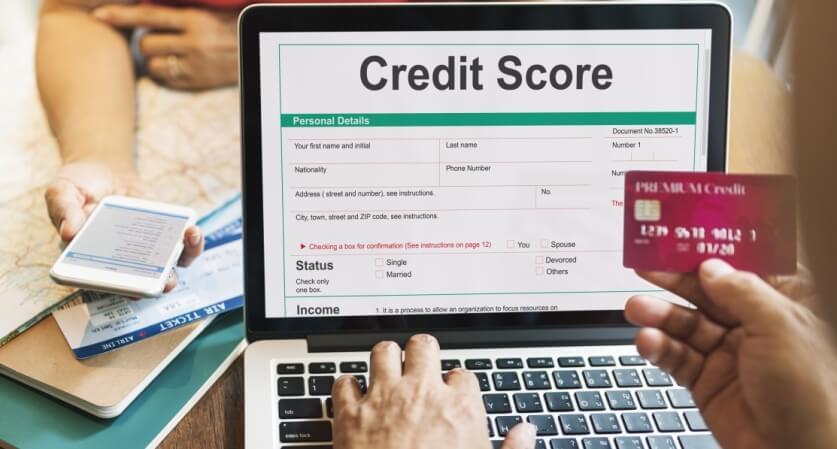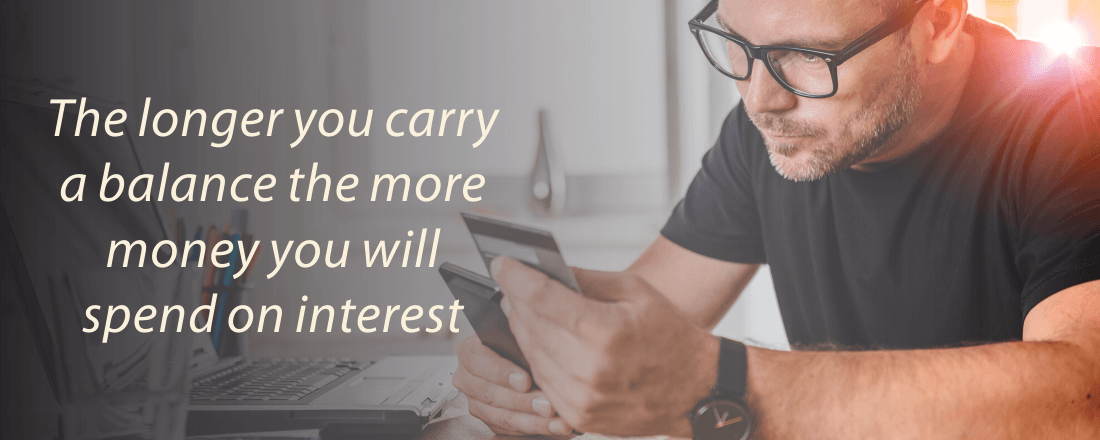
It happens to everyone who has a credit card at one point or another. You overspend. And you often don’t realize it until your statement rolls in. Then you see it. The minimum payment option. Surely you’ll have more money next month to pay off the balance. It’s tempting to just take the easy out and carry the balance for another month or two or three. But this is why you shouldn’t do that. Ever.
When a statement is received after making a month’s worth of credit card purchases, the cardholder can decide whether they would like to pay the minimum payment, pay a little extra or pay off their balance in full. Although it may seem like a good idea to only cover the minimum payment, it will not only take you much longer to pay down the balance and cost you a lot more, it may have a negative impact on your credit score.
Aside from the fact that it could take years to pay off a balance, paying only the monthly minimums can have several negative effects. With a high APR and a few missed payments, the interest and fees could amount to more than your original debt. By deciding to pay more than the monthly minimum, you can save hundreds in interest payments and reduce the time it takes to repay your debt.
The monthly payment process
So, let’s say you were to find yourself shopping and found a great sale on a new high-ticket item that you’ve been wanting for a while. For simplicity purposes, let’s just assume the item you decide to purchase costs $100 and to pay for it, you used a credit card that has an APR of 19.99% and a minimum monthly payment of 2% ($2).
Below you can see examples of how long it would take and how much someone would end up paying in interest fees based on whether they decided to pay only the monthly minimum on their balance or if they decided to pay a bit more each month.
| Balance | APR | Monthly Payment Made | Time Taken to Pay Off Debt | Amount of Interest Collected |
|---|---|---|---|---|
| $100 | 19.99% | $2 | 9 years, 1 month | $116.61 |
| $4 | 2 years, 9 months | $30.42 | ||
| $8 | 1 year, 3 months | $13.07 |
As you can see from this chart, paying only the monthly minimum is never a good idea. Choosing to only pay the monthly minimums on a relatively small balance of $100, would require you to make payments for about nine years. In addition to this, you would have collected over $116 in interest charges, which is even more than the original balance. This chart shows how paying more than the monthly minimum is not only the smarter option, but it’s also the cheaper option.
Negative Effects of Paying Only the Monthly Minimum
Although paying only the monthly minimum can give you a brief sense of relief, and make you feel like you have more money in your pocket, you actually end up committing to making additional interest payments and putting yourself in debt for a longer amount of time. Which is obviously costlier.
Lots of Interest Charges
Anytime that you carry a balance on a credit card for more than 21 days after the date of your statement, you can collect interest. Over time your interest charges will grow. The longer you carry a balance the more money you will spend on interest. By making minimum payments, you provide the banks with just enough money to cover the interest from the previous month. Therefore, your debt will not lower by much.
When you accrue interest this also takes away from any rewards you may be earning. In addition, if you buy an item on credit, because it is on sale but then you proceed to pay interest it will take away from the value of the sale and add to the cost of the item. Also, if someone were to continue making purchases while only paying monthly minimums, they could potentially end up in debt for a long, long time. The only way that someone can avoid interest fees when carrying a balance is if they’re using a
Longer Time to Pay Down Your Debt
By choosing to pay only the monthly minimum on your statement, you can’t get the satisfaction that comes from paying off your debt. When you do this, your debt will constantly come back each month to remind you of its presence. When you receive a monthly credit statement, there will usually be a little section labeled the “minimum payment warning.” This section describes exactly how long it will take and how much it will cost you to repay your debt, paying only the minimum each month.
To prevent people from paying a ridiculously small monthly minimum, most credit issuers will have both a fixed amount and a percentage in place for their minimum payment. Depending on the total amount of debt your carry, the monthly minimum will usually be one to three percent of your current balance or a flat payment of $25, and you will be responsible for whichever one is greater. By making these small payments, you can avoid late fees, but until you pay more than the monthly minimum you won’t see your debt decrease significantly.
Negative Effects on Your Credit Score
Credit utilization is one of the most important factors in determining your credit score. Your credit utilization is how much of your limit you are using. It’s highly recommended that credit utilization should be kept under 30%. Keeping it even lower tends to have a more positive effect on your score. On the other hand, the higher you go above 30% the more negatively it will impact your credit score. When you pay only the minimum, you will be carrying a balance for an extended period of time, which is never a good idea for the future of your credit score.

Pay More Than Just the Minimum
When a cardholder decides to pay the monthly minimum, only a portion of that payment goes toward paying your debt, while the rest will go toward any interest and fees. Every bank and credit issuer has a slightly different process when it comes to calculating their required minimum monthly payment, but for the most part, creditors will calculate it by simply making it a small percentage (usually about 1-3%) of your outstanding debt.
When only paying this small percentage, your debt will decrease at a very slow pace and it could possibly take years to finish making your required payments. Every month that you carry a balance, you will collect interest, which can end up amounting to more than the item you purchased. When you carry a significant balance, your credit utilization can spike, which could have a negative impact on your credit score.
In short, carrying a balance is something that you never really want to do with credit cards, and paying only the minimum every month will cause you to carry a balance for the longest amount of time. Whenever possible, avoid paying just the monthly minimum and try to knock out as much debt as possible, as soon as possible.

